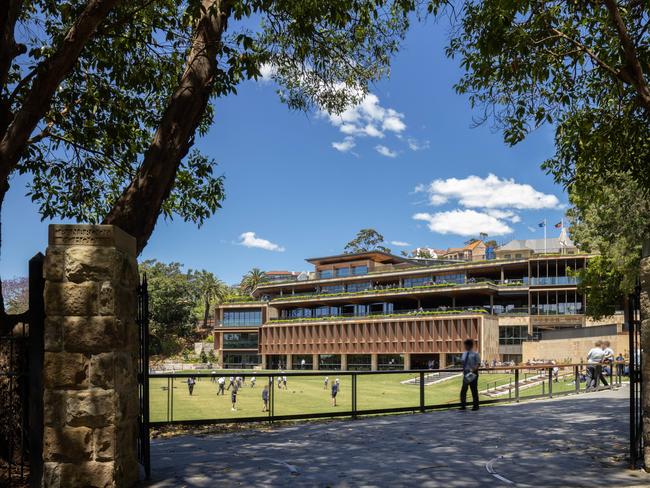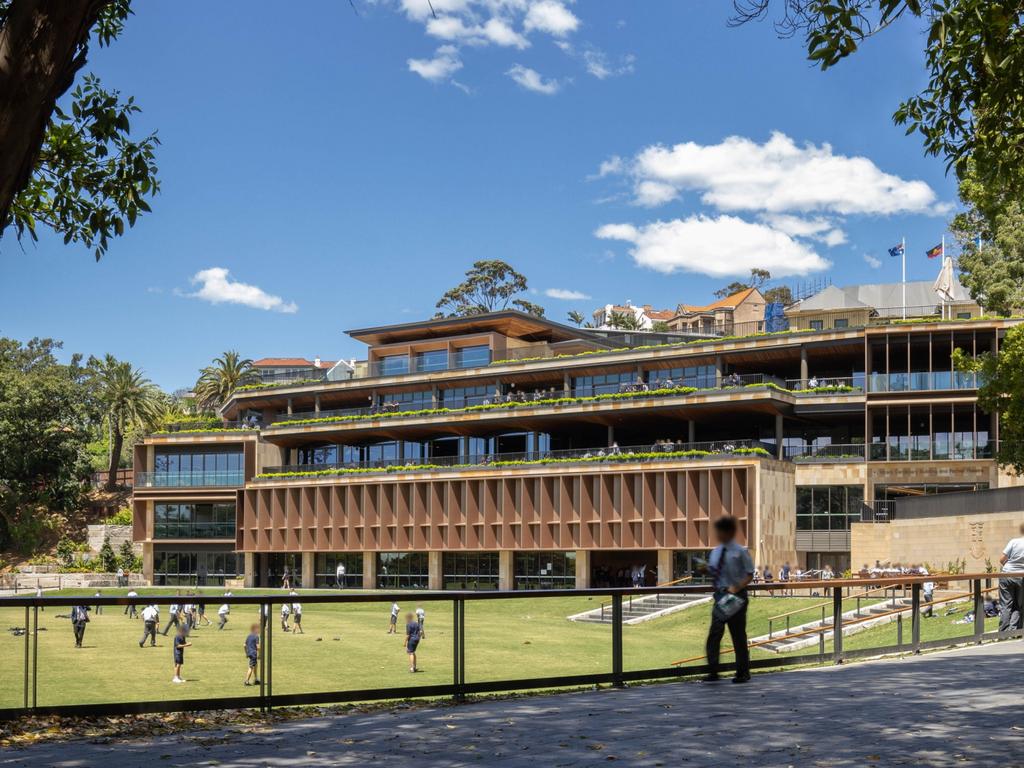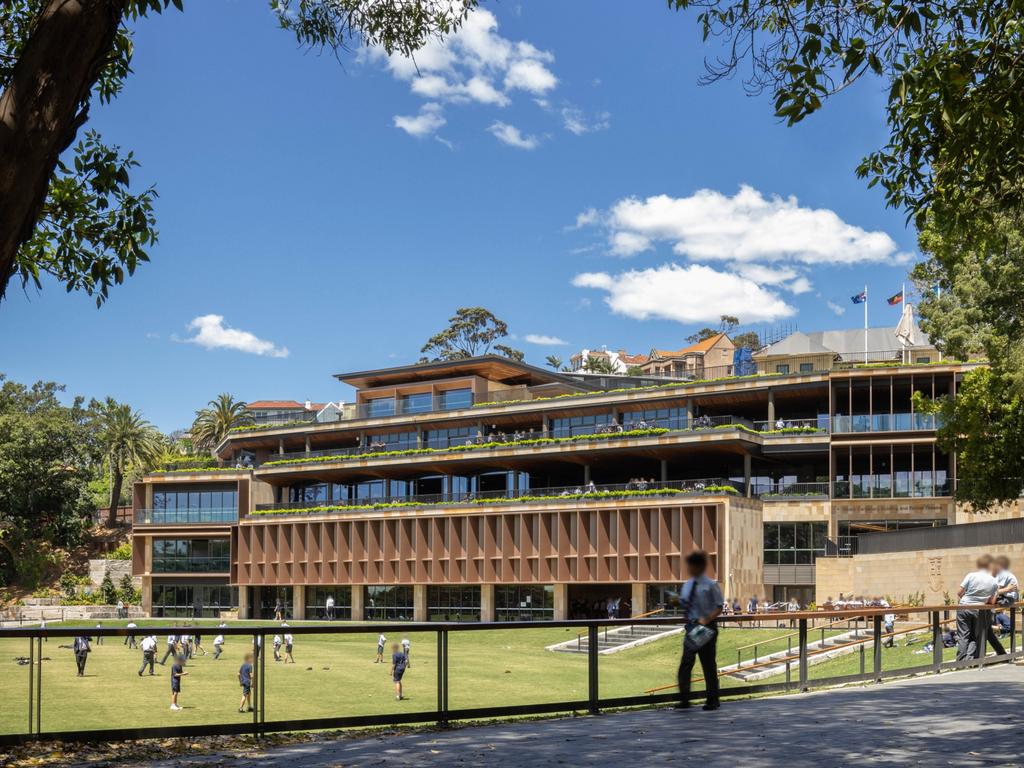Cranbrook’s coeducation council split cited as ammunition in Four Corners report
Cranbrook’s student and parent community have denied the influence of high-profile billionaires on its coeducation transition.

A former Cranbrook prefect has pushed back against labels of systemic misogyny at the school after detailing an internal fight by former school councillors against coeducation.
On Monday, the ABC’s Four Corners reported a pattern of staff harassment and sexual misconduct by students of Cranbrook under the purview of senior leadership who had not handled it appropriately.
Senior members of the Cranbrook School community expressed chagrin to The Australian at the ABC “re-litigating” previous public controversies of the school and its principal, Nicholas Sampson.
One such aspect was the program’s portrayal of the slated 2026 shift to coeducation being “painted as billionaires trying to control the school”, as described by a Cranbrook parent who wished to remain anonymous.
The program detailed a proposal for the school’s coeducation shift in which a billionaire parent at the school would finance the enrolment of 30 female students by 2023.
The Australian understands that this offer was an early model floated, which would provide scholarships to young women to enrol in the cohort’s year 11 and year 12 classes. While the proposal did not progress further, it has been alleged it was not a major factor in later negotiations that led to the exit of 11 of the 12 council members.
Cranbrook old boy Adam Karras said the proposal had placed an “urgency” on the coeducation planning, but a financial motive had never driven the decision. “I was aware that there were some significant members of the Cranbrook community … prepared to back the co-ed plan.
“I was aware that there was some sort of temporal urgency to it in the sense that the financial backing was on the table for a certain amount of time,” he said.
“I think there were obstacles or obstructions and delays for that plan being put in place due to … there being strong opposition to the proposal from the majority of members of the school council.
“Whatever the financial benefits or downfalls of the proposal might be, (it) was very much inspired and motivated by a recognition that single-sex institutions might be antiquated, and might be productive of anti-social … behaviours, particularly in respect of attitudes towards women.”

Mr Karras began at Cranbrook as a year 3 student, graduating as school prefect in 2013. He went on to study arts at Sydney University, then journalism and law. After graduating in 2020, he became a corporate lawyer.
Mr Sampson was principal during Mr Karras’s final year at Cranbrook. “I had a year’s worth of interaction with him, during which time I felt incredibly confident about the direction he was taking the school,” he said.
He was one of more than 20 former prefects to support a push for coeducation in 2022. While Mr Karras pushed against the label of Cranbrook as a school for “future leaders”, he said students had to be aware of the privilege that a private school affords them. “I don’t think because I went to Cranbrook I was placed on some sort of tram track or conveyor belt where I was being moulded to be a future leader in a high-powered institution,” he said. “Cranbrook, to its credit and defence, maybe set itself apart from some of the other schools in the area in the sense that they’re very supportive of diverse life and career choices.”

The Cranbrook School was approached for comment but did not wish to speak publicly before it had consulted with parents and guardians of students.
Mr Karras did not challenge the ABC’s account of discrimination against Cranbrook teaching staff and former students.
“I don’t want to minimise or suggest … that none of the things alleged to have happened have happened,” he said. “(But) I don’t think it is reflective of a systemic cultural issue; I don’t think there is an embedded misogyny or disrespect towards women.”
The Australian understands that much of the senior leadership to exit Cranbrook in 2022 did so partly out of frustration at having a lack of influence over Mr Sampson.







